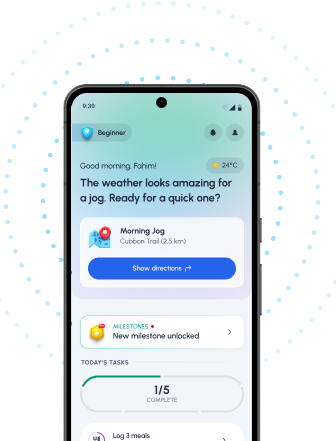Table of Contents
- Diabetes and Sleepwalking: Uncovering the Links
- Does Diabetes Increase Sleepwalking Risk?
- Improving Sleep Quality for People with Diabetes
- Managing Sleep Disorders in Diabetic Patients
- The Connection Between Blood Sugar and Nocturnal Wandering
- Frequently Asked Questions
- References
Ever woken up in a strange place, disoriented and with no memory of how you got there? For some, this isn’t just a bizarre dream; it’s a potential symptom of a serious health condition. This blog post explores the fascinating, and sometimes concerning, connection between Diabetes and Sleepwalking. We’ll delve into the reasons why blood sugar levels might disrupt your sleep cycle, leading to episodes of somnambulism. Understanding this link is crucial for both managing your diabetes effectively and ensuring your safety. Let’s uncover the surprising relationship between these two seemingly unrelated conditions.
Diabetes and Sleepwalking: Uncovering the Links
Sleepwalking, a perplexing sleep disorder, may have a surprising connection to diabetes, particularly prevalent in India and other tropical countries. Research indicates a significant link between diabetes and sleep apnea, with individuals with diabetes facing a 70% increased risk of developing this sleep disorder. Sleep apnea, characterized by pauses in breathing during sleep, disrupts the sleep cycle, potentially leading to sleepwalking episodes. The underlying physiological changes associated with diabetes, such as hormonal imbalances and nerve damage (neuropathy), might further contribute to this increased risk. These factors can disrupt the normal sleep architecture, increasing susceptibility to parasomnias like sleepwalking.
Understanding the Interplay
The connection isn’t simply correlative. High blood sugar levels characteristic of uncontrolled diabetes can impact brain function during sleep, making individuals more prone to abnormal sleep behaviors. Additionally, the chronic inflammation associated with diabetes can affect various bodily systems, including the neurological pathways that regulate sleep and wakefulness. In tropical regions, where diabetes prevalence is notably high, understanding this interplay is crucial for effective health management. This is especially critical in India, where both diabetes and sleep disorders are significant health concerns. For a deeper understanding of the relationship between these two conditions, please refer to our article on The Connection Between Diabetes and Sleep Apnea.
Practical Steps for Prevention
Managing blood sugar levels effectively is paramount. Maintaining a healthy weight, regular exercise, and a balanced diet are crucial steps in mitigating the risks. Furthermore, seeking medical attention for both diabetes and sleep disorders is essential for appropriate diagnosis and treatment. In India and other tropical countries, access to specialized sleep clinics and diabetes care is increasingly available. Prioritizing regular check-ups and open communication with healthcare providers can make a significant difference in preventing and managing both conditions. Don’t hesitate to seek professional help if you or someone you know experiences sleepwalking, especially in the context of diabetes. Remember that achieving The Importance of Quality Sleep in Managing Diabetes is a key component of overall health.
Does Diabetes Increase Sleepwalking Risk?
The connection between diabetes and sleepwalking isn’t as straightforward as some might think, but there’s a growing body of research suggesting a potential link. While not definitively proven as a direct cause-and-effect relationship, several factors associated with diabetes can indirectly increase the likelihood of sleepwalking, particularly in individuals living in hot and humid climates common to many Indian and tropical countries.
Underlying Factors and Increased Risk
One key factor is the impact of fluctuating blood sugar levels. Hyperglycemia (high blood sugar) and hypoglycemia (low blood sugar), both common in individuals with diabetes, can disrupt sleep architecture, leading to more fragmented and less restful sleep. This sleep disruption can trigger parasomnias like sleepwalking. Furthermore, certain medications used to manage diabetes can also have side effects that affect sleep patterns and potentially increase sleepwalking risk. The added stress of managing a chronic condition like diabetes, coupled with the heat and humidity prevalent in many tropical regions, can further exacerbate sleep disturbances. This is especially relevant considering research highlighting the increased mortality risk among smokers with diabetes due to cardiovascular complications; sleep deprivation can contribute to these cardiovascular issues. This is further complicated by the fact that many diabetics experience sleepiness after meals, as discussed in Why Do Diabetics Get Sleepy After Eating?.
Regional Considerations and Practical Advice
In tropical climates, factors like heat, humidity, and infectious diseases can further complicate the management of diabetes and sleep quality. Therefore, maintaining consistent blood sugar levels through proper diet, medication adherence, and regular exercise becomes even more crucial. Prioritizing sleep hygiene, including creating a cool and comfortable sleep environment and maintaining a regular sleep schedule, is essential. If you experience sleepwalking or other sleep disturbances, it is vital to consult with your doctor or a sleep specialist. They can help assess the potential link to your diabetes management and recommend appropriate interventions. Early detection and management of sleep disorders are crucial for improving overall health and quality of life, especially in regions where diabetes prevalence is high. Understanding the relationship between diabetes and sleepiness is also important; you can read more about this in Does Sugar Diabetes Make You Sleepy? – Tap Health.
Improving Sleep Quality for People with Diabetes
The Importance of Sleep for Diabetes Management
Diabetes significantly impacts sleep quality, and poor sleep, in turn, worsens diabetes management. This is particularly relevant in Indian and tropical countries where high temperatures and varied lifestyles can further disrupt sleep patterns. A significant portion of the diabetic population, 61% are aged between 20-64 years, are in the prime of their working lives, making consistent sleep crucial for productivity and overall health. For the older population, 39% aged 65+, sleep disturbances can exacerbate existing health complications associated with diabetes. Understanding and addressing sleep issues is therefore paramount.
Practical Steps for Better Sleep
Several factors contribute to poor sleep in individuals with diabetes, including nighttime urination, discomfort from neuropathy, and medication side effects. Simple changes can significantly improve sleep quality. Establishing a regular sleep schedule, even on weekends, is crucial. Creating a relaxing bedtime routine, avoiding caffeine and large meals before bed, and ensuring a cool, dark, and quiet sleep environment are equally important. Regular physical activity, but not too close to bedtime, can also improve sleep. For those struggling with nighttime urination, limiting fluid intake before bed can help. Addressing these issues can improve blood sugar control and overall well-being. Sometimes, feeling sleepy after eating can be a sign of underlying issues, including diabetes. Learn more about this connection by reading our article on is feeling sleepy after eating a sign of diabetes.
Seeking Expert Advice
If sleep problems persist despite implementing these strategies, it is essential to consult a healthcare professional. Many doctors in India and tropical countries are well-versed in managing diabetes and related sleep disorders. They can help identify underlying causes, recommend appropriate treatments, and offer personalized advice to improve your sleep quality and manage your diabetes effectively. Taking proactive steps towards better sleep is an investment in a healthier and more productive life. Furthermore, advancements in technology are continuously improving diabetes management and overall lifestyle. Check out our article on How Can New Technological Advances Improve Diabetes Lifestyle? for more information.
Managing Sleep Disorders in Diabetic Patients
Diabetes significantly impacts sleep, and understanding this connection is crucial for effective management, especially in Indian and tropical countries where specific challenges exist. One major factor is diabetic neuropathy, a nerve damage affecting 30-50% of diabetic patients. This condition causes pain and reduced mobility, directly disrupting sleep quality and increasing the likelihood of sleep disorders like sleepwalking. The heat and humidity prevalent in many tropical regions can further exacerbate these issues, leading to restless nights and increased fatigue.
Addressing Sleep Disturbances in Diabetics
Managing sleep disorders in diabetic patients requires a multi-pronged approach. Firstly, controlling blood sugar levels is paramount. Consistent monitoring and adherence to prescribed medication or dietary plans are essential. Secondly, addressing the underlying pain associated with diabetic neuropathy is vital. This may involve medication, physiotherapy, or other pain management techniques. Regular exercise, though challenging with neuropathy, remains crucial for improving sleep quality. However, it should be tailored to the individual’s capabilities to avoid exacerbating discomfort. The impact of consistent, good quality sleep on overall health is significant, and understanding its link to nutritional choices, as discussed in The Impact of Sleep Quality on Nutritional Choices – Tap Health, can be incredibly beneficial.
Regional Considerations & Practical Tips
In India and other tropical regions, managing sleep disorders in diabetic patients requires additional consideration. Staying hydrated is exceptionally important in hot climates, as dehydration can disrupt sleep. Creating a cool and comfortable sleep environment is also crucial, possibly involving the use of fans or air conditioning, if feasible. Furthermore, seeking advice from a doctor or specialist familiar with the local climate and healthcare resources is highly recommended. Regular consultations with healthcare professionals are vital for ongoing monitoring and adjustments to treatment plans. As we age, managing diabetes becomes even more complex, and understanding the specific challenges is essential, as outlined in Managing Diabetes as You Age: Challenges and Solutions.
The Connection Between Blood Sugar and Nocturnal Wandering
Sleepwalking, or somnambulism, is a sleep disorder that can manifest in various ways, from simple wandering to more complex behaviors. While it affects people of all ages and backgrounds, research suggests a potential link between blood sugar levels and an increased risk of sleepwalking, particularly in individuals with diabetes or prediabetes. This connection is especially relevant in hot and humid climates prevalent in many Indian and tropical countries, where sleep disturbances are already more common.
Understanding the Risk Factors
Fluctuations in blood glucose levels can disrupt the sleep cycle. High blood sugar, above 200 mg/dL, indicating diabetes, or even elevated levels in the prediabetes range (140–199 mg/dL), can interfere with the deep, restorative sleep phases necessary for proper bodily function. This disruption can increase the likelihood of experiencing parasomnias, such as sleepwalking. Conversely, hypoglycemia (low blood sugar, less than 140 mg/dL), while less directly linked, can also trigger episodes in some individuals due to the body’s stress response. The impact of these fluctuations might be amplified in warmer climates, where individuals might experience dehydration and further sleep disruption.
Practical Steps for Better Sleep
Managing blood sugar levels is crucial for overall health and minimizing the risk of sleepwalking. For individuals in India and tropical countries, this requires paying close attention to diet, incorporating regular exercise, and adhering to prescribed medication. Maintaining proper hydration is also vital, particularly during the warmer months. Consulting a doctor or diabetologist is essential for personalized advice on managing diabetes and its associated sleep disorders. They can offer guidance on blood sugar monitoring, medication adjustments, and lifestyle changes tailored to your specific needs and the regional climate. Prioritizing a regular sleep schedule and creating a conducive sleep environment can further help reduce the likelihood of sleepwalking episodes. For more information on maintaining healthy blood sugar levels, see our article, Blood Sugar Levels. Understanding the connection between Weight Loss and Blood Sugar Levels: Simple Connection Explained can also be beneficial in managing this condition.
Frequently Asked Questions on Diabetes and Sleepwalking
Q1. Is there a link between diabetes and sleepwalking?
Yes, research suggests a correlation, especially in people with poorly controlled diabetes living in tropical climates. High blood sugar levels disrupt sleep, increasing the risk of sleepwalking.
Q2. Why does diabetes increase the risk of sleepwalking?
Uncontrolled diabetes disrupts the normal sleep cycle. High blood sugar, sleep apnea (more common in diabetics), hormonal imbalances, and nerve damage (neuropathy) all contribute to this increased risk.
Q3. How can I reduce my risk of sleepwalking if I have diabetes?
Effective blood sugar management through diet, exercise, and medication is key. Treating any underlying nerve pain and creating a relaxing sleep environment are also important.
Q4. What should I do if I suspect I have both diabetes and a sleep disorder?
Consult a healthcare professional immediately for diagnosis and treatment. They can create a comprehensive plan to manage both conditions.
Q5. Does living in a tropical climate increase the risk?
Studies suggest a higher correlation between diabetes and sleepwalking in tropical regions like India, possibly due to environmental factors interacting with the disease.
References
- A Practical Guide to Integrated Type 2 Diabetes Care: https://www.hse.ie/eng/services/list/2/primarycare/east-coast-diabetes-service/management-of-type-2-diabetes/diabetes-and-pregnancy/icgp-guide-to-integrated-type-2.pdf
- What is Diabetes: https://www.medschool.lsuhsc.edu/genetics/docs/DIABETES.pdf




